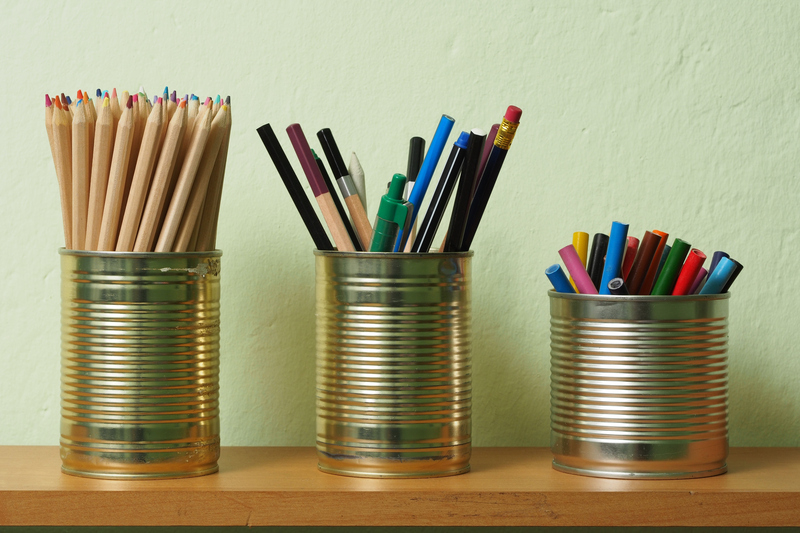The Ultimate Guide to Saving Money on Bulky Waste
Are you struggling to get rid of old furniture, broken appliances, or large household items without breaking the bank? Bulky waste disposal can be a real headache and an unexpected cost for many households. However, with a few strategic tips and a little know-how, you can save money on bulky waste while keeping your home clutter-free and environmentally friendly. Welcome to The Ultimate Guide to Saving Money on Bulky Waste--your one-stop resource for effective, affordable, and eco-conscious disposal solutions.
What is Bulky Waste?
Bulky waste refers to household items that are too large to be collected by your regular curbside waste collection. This typically includes old sofas, mattresses, washing machines, fridges, garden debris, carpets, and large pieces of wood or scrap metal. Removing such items often requires special collection services, which can come with hefty fees.
Common Types of Bulky Waste Items
- Furniture (sofas, beds, tables, wardrobes)
- Large household appliances (fridges, washing machines, ovens)
- Mattresses and bed frames
- Carpets and rugs
- Garden waste (branches, old fencing, sheds, lawn mowers)
- Renovation debris (wood, concrete, tiles, bathtubs)
- Electronics (TVs, computer monitors, stereo systems)

Why Proper Bulky Waste Disposal Matters
Improper bulky waste disposal can lead to illegal dumping, environmental hazards, and even fines. Responsible disposal is not only legal and ethical, but it's also an opportunity to save money on bulky waste by choosing options that are both affordable and sustainable.
- Environmental Protection: Proper recycling and disposal prevents pollution.
- Legal Compliance: Avoid costly penalties from fly-tipping or dumping bulky items illegally.
- Cost Savings: Smarter disposal methods often save you money.
Top Strategies for Saving Money on Bulky Waste
If you're looking to cut bulky waste removal costs, you need a plan in place for disposal. Here are the best proven methods to get rid of your large unwanted items without spending a fortune:
1. Reuse and Upcycle Where Possible
- Sell Unwanted Items: If your bulky waste is still usable, try selling it online through platforms like Facebook Marketplace, eBay, or local classified ads. Somebody might need what you're throwing out!
- Donate: Charities and reuse organizations often take furniture, appliances, and other large items in good condition. Donating saves money on disposal and helps others in need.
- Upcycle: Turn old furniture into something new by painting, repurposing, or DIY crafts. This not only diverts waste from landfills but can also save you money on replacements.
2. Use Your Local Authority's Bulky Waste Collection
Most municipalities offer bulky waste collection services for residents. These services are usually more affordable than private disposal companies and sometimes even free for a limited number of items per year.
- Check Collection Schedules: Many councils have fixed dates or allow you to book collections in advance. Plan ahead to avoid rush fees or last-minute expenses.
- Understand the Rules: Some local authorities restrict which items they can take or how many; check what's allowed before booking.
- Group with Neighbors: Share the cost of a communal collection with neighbors, especially if several households have items to dispose of.
3. Bulk Drop-off at Recycling Centers
- Many regions operate household recycling centers (sometimes called tips or dumps) where residents can drop off bulky waste either for free or for a nominal fee.
- Dispose of multiple items in one trip to maximize savings.
- Separate materials such as metals, wood, and electronics before you go; some centers recycle certain items for free.
4. Hire a Skip Wisely
If you have a large amount of bulky waste, hiring a skip may be cost-effective. However, there are ways to keep skip hire affordable:
- Choose the Right Size: Overestimating skip size wastes money, while underestimating creates the need for a second skip. Assess your waste accurately.
- Compare Quotes: Always get quotes from at least three local skip providers before booking.
- Share with Neighbors: Just like local authority collections, sharing a skip with others reduces costs for everyone.
- Fill Efficiently: Break down items where possible to maximize every inch of space.
5. Explore Private Bulky Waste Removal Services
- Private companies offer flexible, fast removal of bulky items. For smaller loads, this can sometimes be cheaper than hiring a skip.
- Use Man & Van rubbish removal services for cost-effective collection, especially for a few large items.
- Book Off-Peak: Some companies offer discounts for weekday or off-season slots.
- Pay by Volume: Choose providers that charge based on the actual volume or weight of your waste, rather than a flat rate.
6. Participate in Community Clean-Up Events
Many localities and community groups organize annual or semi-annual clean-up days where residents can dispose of bulky items for free or a discounted fee. Look out for announcements on council websites or neighborhood social media groups.
Cost Comparison: Bulky Waste Disposal Options
Here's a quick cost comparison to help you choose the cheapest bulky item removal method for your needs:
| Disposal Option | Average Cost | Pros | Cons |
|---|---|---|---|
| Local Authority Collection | ?0-?60 (per collection) | Convenient, regulated, sometimes free | Limited slots, specific dates, item restrictions |
| Community Recycling Centre | Free-?20 (per trip) | Cheap, environmentally friendly | Need to transport items yourself |
| Skip Hire | ?100-?300 (per skip) | Efficient for large volumes, several days use | Expensive for small loads, driveway required |
| Private Removal Companies | ?30-?200 (per load) | Fast, convenient, handling included | Varied prices, potential for hidden fees |
| Charity Pick-up/Donation | Usually free | Ethical, helps others | Only for items in usable condition |
How to Prepare Bulky Waste for Disposal
Proper preparation can save money on bulky waste disposal by ensuring items are accepted and by minimizing costs:
- Disassemble items: Break down furniture or appliances to save space and potentially reduce disposal fees.
- Sort materials: Separate recyclable materials from general waste.
- Remove hazardous parts: For example, fridges may need to have CFCs removed by professionals.
- Check for donation potential: Clean and repair items that might be eligible for reuse programs.
Bulky Waste Recycling: Turning Trash Into Treasure
Recycling bulky waste is not only a smart environmental step but can significantly reduce your disposal costs. Many items can be recycled completely or in part:
- Metals: Scrap metal merchants may pay you for old washers, stoves, or bed frames.
- Wood: Clean, untreated timber can be recycled into chipboard or used as fuel.
- Mattresses: Some companies specialize in mattress recycling, extracting springs and foam for reuse.
- Electronics: WEEE-compliant recycling firms handle TVs and computers, often free at local centers.
Contact your local recycling center or waste contractor to confirm what can be recycled in your area.
Bulk Waste Reduction Tips to Save Money in the Long Term
- Buy quality, not quantity: Investing in durable furniture and appliances means fewer replacements and less bulky waste.
- Maintain and repair items: Fix broken furniture and appliances when possible, rather than discarding them.
- Borrow or rent: For rarely used items, consider renting or borrowing to avoid extra clutter and waste.
- Say no to freebies: Avoid accepting items you don't need just because they're available--this creates waste later on.
- Organize regular decluttering: Keeping on top of possessions prevents buildup of unwanted items.

Frequently Asked Questions (FAQ) on Saving Money on Bulky Waste
Can I leave bulky waste on the curb?
Leaving large waste items by the curb without booking official collection is considered illegal dumping in most areas and can result in fines. Always check your local regulations before placing items outside.
What is the cheapest way to get rid of bulky waste?
The most budget-friendly method is to reuse, resell, or donate usable items. For true rubbish, your local recycling center is often the next cheapest. Community collection days and sharing costs with neighbors are also great ways to reduce bulky item disposal costs.
Are there charities that take large items?
Yes! Many charities including the British Heart Foundation, Salvation Army, or local furniture reuse schemes will often collect large items for free if they're in good condition. Check for organizations in your area and book ahead, as some have waiting lists.
Can I get paid for some bulky waste items?
Absolutely! Scrap metal dealers may pay for metal beds, radiators, or appliances. Some online marketplaces allow you to list items for "collection only," so buyers do all the lifting and transport while you keep the cash or at least avoid costs.
Do private waste removal companies recycle?
Most reputable bulky waste removal companies will recycle as much as possible, especially appliances and electronics. Always ask about their recycling policies before booking.
Conclusion: Make Your Bulky Waste Disposal Affordable and Eco-Friendly
Reducing, reusing, and recycling are the cornerstones of cost-effective bulky waste disposal. With a combination of planning, local resources, and some community spirit, disposing of large items doesn't have to hit your wallet or the planet hard.
To quickly recap, here are the key tips to save money on bulky waste:
- Reuse, sell, or donate any usable items first.
- Always check for local authority or community bulk collections.
- Use recycling centers where possible; sort and prepare waste properly.
- Compare prices for skip hire and private removal companies--don't forget to ask about recycling.
- Participate in neighborhood clean-up days or share costs with others.
- Plan ahead and maintain your possessions to reduce future waste costs.
By applying these strategies in your household, you'll benefit from lower bulky waste disposal costs, a tidier living space, and a greener future for all. Start saving money on bulky waste today!